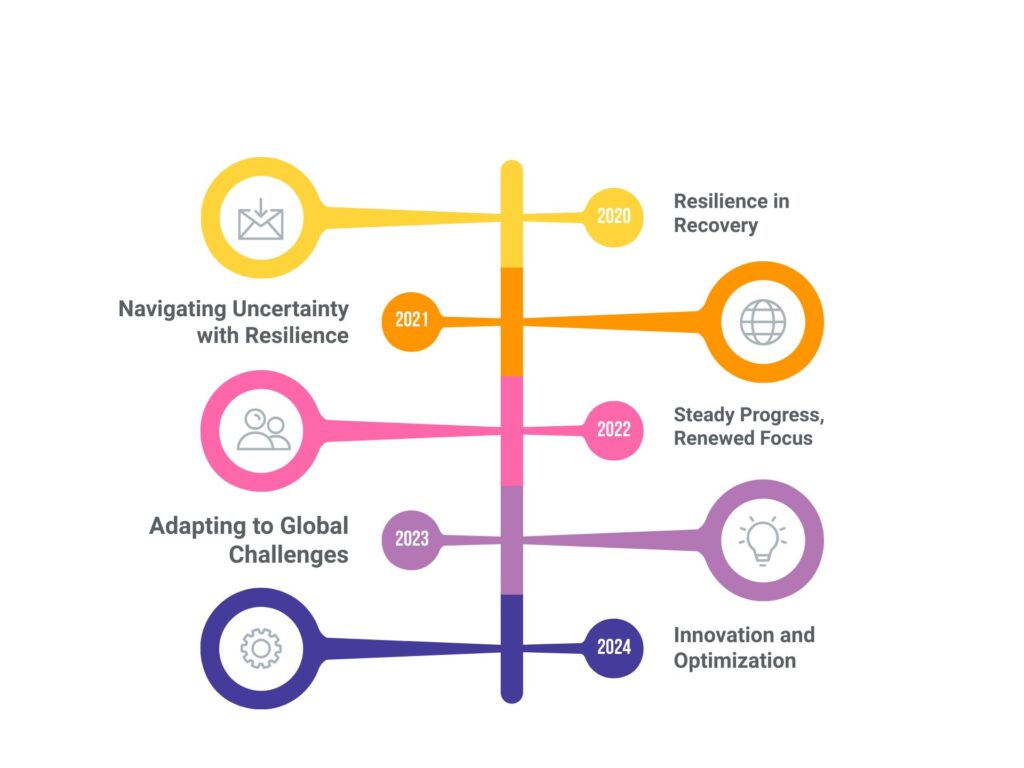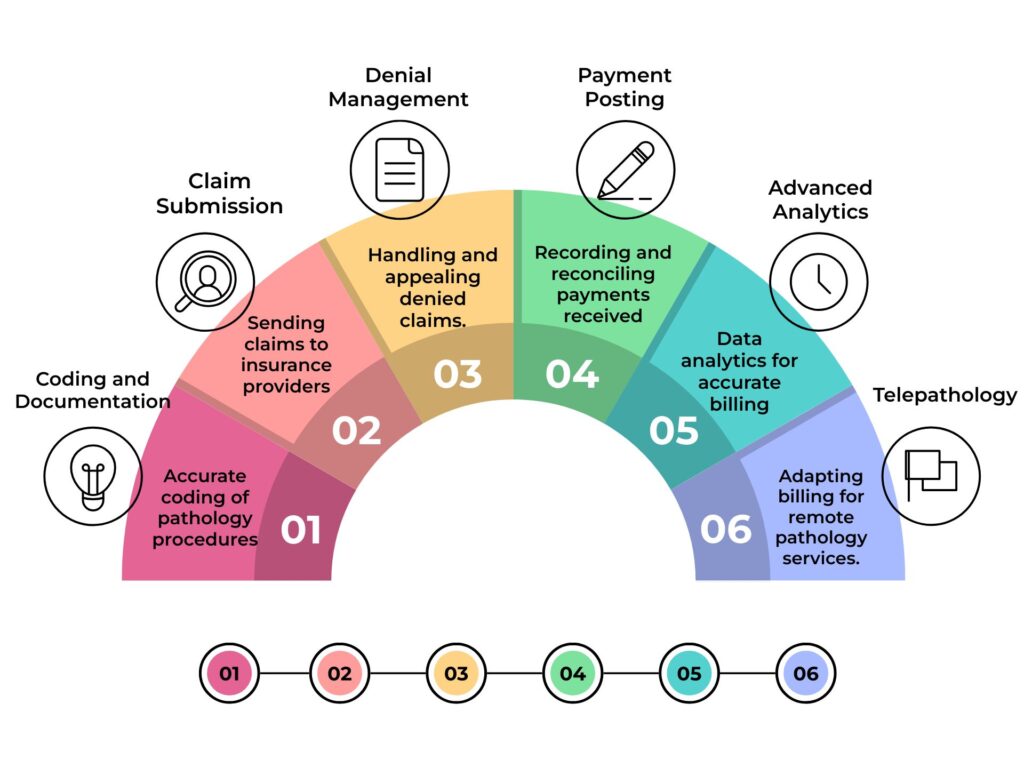Effective staff training for RCM (Revenue Cycle Management) is vital for any healthcare organization aiming to improve its financial performance. In the increasingly complex world of medical billing, the success of your revenue cycle hinges not only on technology or policies but also on the knowledge and skills of your staff.
What is Revenue Cycle Management (RCM)?
Revenue Cycle Management (RCM) in healthcare refers to the financial process that facilities use to track patient care episodes from registration and appointment scheduling to the final payment of a balance. It encompasses the identification, management, and collection of patient service revenue.
RCM includes several stages, such as insurance eligibility verification, coding, charge capture, claim submission, payment posting, and denial management. Given this complexity, staff training for RCM is essential to ensure that every step is handled efficiently and correctly.
Importance of Staff Training for RCM in Medical Billing
Minimizing Errors
One of the most important reasons for staff training for RCM is to reduce billing errors. Mistakes in coding, documentation, or insurance verification can lead to claim denials or delays in payment. Trained staff are more likely to understand the intricacies of payer requirements and medical coding standards.
Enhancing Productivity
Well-trained staff are more efficient in handling billing tasks, allowing for faster processing of claims and fewer backlogs. When every team member understands their role in the RCM cycle, they can perform more confidently and quickly, leading to better turnaround times.
Ensuring Compliance
Compliance with healthcare regulations, such as HIPAA and payer-specific guidelines, is crucial. Training helps staff stay updated on the latest regulatory changes and apply them accurately, reducing the risk of audits and penalties.
See how strategic training leads to faster reimbursements and better compliance.
Core Components of Effective RCM Training
1. Understanding the RCM Workflow
Before diving into software or coding, employees must understand the overall RCM process. This includes each step from pre-authorization to final reimbursement. Staff training for RCM should begin with a foundational overview to build a clear conceptual framework.
2. Medical Coding and Billing
Medical coding (ICD-10, CPT, HCPCS) is central to RCM. Incorrect codes lead to denials or underpayment. Training should include proper coding practices, frequent updates, and payer-specific nuances.
3. Insurance and Payer Policies
Different insurance carriers have different rules. Employees should learn about primary and secondary insurance, coordination of benefits, authorization requirements, and payer-specific submission procedures.
4. Claim Management and Denial Resolution
Training should include how to correctly submit claims, monitor their progress, and handle denials. This aspect of staff training for RCM helps minimize lost revenue due to preventable errors.
5. Customer Service and Patient Communication
RCM isn’t only about systems and processes—it also involves interaction with patients. Training should emphasize patient communication skills, particularly regarding billing questions, insurance coverage, and payment options.

6. Use of Medical Billing Software
Staff must be proficient in the practice’s billing software, whether it’s Epic, Cerner, Athenahealth, or others. Hands-on training and role-specific instruction ensure that users can navigate these systems efficiently.
Training Methods for RCM Staff
To ensure maximum retention and practical application, training should be diverse and tailored. Here are some effective methods:
Onboarding Programs
New hires should go through structured onboarding that includes all elements of the RCM process. This helps align them with the organization’s goals from the beginning.
Workshops and Seminars
Interactive sessions enable staff to ask questions and receive immediate feedback. These can be particularly effective for changes in compliance requirements or software upgrades.
E-Learning Modules
Digital platforms offer flexibility and consistency in training. These can include video tutorials, quizzes, and simulations that employees can access at their convenience.
Peer-to-Peer Mentoring
Senior billing professionals can provide real-world insights to new or junior staff. This form of staff training for RCM promotes team cohesion and knowledge sharing.
Common Challenges in RCM Staff Training
High Staff Turnover
The medical billing field is known for high turnover, which can make it hard to maintain consistent training. Organizations must develop repeatable and scalable training modules to address this issue.
Keeping Up with Industry Changes
Frequent updates to codes, payer policies, and compliance rules mean that training must be continuous. A static training model can quickly become outdated.
Limited Budget and Time
Many practices struggle to allocate sufficient resources for training. Yet investing in staff training for RCM often leads to a significant return through reduced denials and improved collections.
Unlock faster payments and fewer billing errors.
Measuring the Effectiveness of RCM Training
Training should be a measurable process. Use the following KPIs to gauge its impact:
- Claim denial rates
- Days in accounts receivable (A/R)
- First-pass claim resolution rate
- Staff productivity
- Patient satisfaction with billing
Periodic evaluations help identify gaps and optimize the training program accordingly.
Benefits of Ongoing RCM Training
Improved Revenue Capture
When staff are well-trained, the likelihood of capturing all billable charges increases. This directly boosts the practice’s bottom line.

Better Staff Morale and Retention
Training instills confidence and competence, which leads to job satisfaction. Employees who feel capable and valued are more likely to stay.
Reduced Operational Costs
Fewer errors mean fewer reworks and wasted hours. Over time, investing in staff training for RCM saves money.
Key Areas to Emphasize in RCM Staff Training
| Training Focus | Why It Matters |
|---|---|
| Coding Accuracy | Prevents denials and rework |
| Insurance Verification | Ensures claim eligibility |
| Software Proficiency | Boosts speed and accuracy |
| Denial Management | Recovers lost revenue |
| Compliance and Regulations | Avoids fines and penalties |
| Patient Communication | Enhances satisfaction |
Integrating Training Into Organizational Culture
To make training effective, it must become a part of your organizational DNA—not just a one-time event. Management should:
- Schedule routine refreshers.
- Reward continued learning.
- Encourage feedback and questions.
- Provide certifications or recognitions.
Making staff training for RCM a priority sends a strong message that quality and accuracy are core values.
Conclusion
In the dynamic world of medical billing, the role of well-trained staff cannot be overstated. Staff training for RCM is not just a cost—it’s a strategic investment in your organization’s long-term financial health. From minimizing denials to improving patient communication, every facet of RCM can benefit from a well-prepared team.
By adopting structured training programs, staying current with industry changes, and fostering a culture of continuous improvement, healthcare providers can ensure that their revenue cycle operations are both efficient and compliant. In a competitive and regulated environment, this can make the difference between financial strain and sustainable success.
FAQs
How often should RCM staff be trained?
Ideally, staff training for RCM should be continuous. While onboarding is essential, regular refresher courses and updates are necessary to stay current with changing coding standards, payer policies, and compliance requirements.
What topics should be included in RCM staff training programs?
RCM training should cover topics such as medical coding (ICD-10, CPT), insurance verification, billing software, claim submission processes, denial resolution, HIPAA compliance, and patient communication.
Can poor staff training affect revenue cycle performance?
Yes, inadequate training can lead to billing errors, increased claim denials, compliance issues, and delayed payments, all of which negatively impact the healthcare provider’s financial performance.
What are the benefits of using software in RCM training?
Using software during staff training for RCM helps employees gain hands-on experience with billing systems, enhances their technical proficiency, and reduces user errors in real-world operations.
Is remote or online RCM training effective?
Yes, online training modules offer flexibility, consistency, and scalability. When well-designed, e-learning platforms can be just as effective as in-person sessions, especially for dispersed or hybrid teams.

